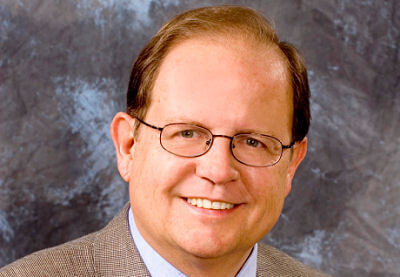
religious, faith-based movies and television programs with inspiring
content and messages can be a professionally and personally rewarding
job.
That’s the conclusion of
a panel discussion, “Making, Distributing and Promoting Spiritually
Uplifting Family Movies and Television Programs,” held Friday at the
InkTip Pitch & Networking Summit in Burbank, Calif.
Moderated
by Radio and Website Manager Jeff Holder of Movieguide, which sponsored
the event, the panelists gave a standing room only group of aspiring
scriptwriters and producers a unique opportunity to hear from a panel of
accomplished screenwriters and producers about what it takes to make
spiritually uplifting, redemptive, faith-based movies and TV programs.
Among the panelists were writer/producer Jim Britts (To Save a Life), writers/producers James Bruner (Ice Dreams and Missing in Action) and Elizabeth Stevens (Ice Dreams), and producer Larry Thompson (Amish Grace, Lucy & Desi: Before the Laughter and Little Girl Lost).
Amish Grace won the $100,000 Epiphany Prize for Most Inspiring TV program of 2010. Ice Dreams was a nominee for that award. To Save a Life was a nominee for the $100,000 Epiphany Prize for the Most Inspiring Movie of 2010.
The
two $100,000 Epiphany Prizes are given each year to the best movie and
television program that “greatly increases people’s love or
understanding of God.”
All
four panelists advised the attendees to make their spiritually
uplifting, redemptive and faith-based content a part of the story and
characters, and not to just tack it onto their story.
“Make
it part of the story and part of the character’s journey, someone who
overcomes obstacles through spiritual growth,” Bruner said. “You have to
care about the main character. If you don’t care, the audience doesn’t
care.”
“We always like to flesh out our character’s background,” Stevens added. “A lot of times, the situations will come out of that.”
The
panelists discussed their roots, what attracted them to the
entertainment industry and how they ended up working in that industry.
“I’ve never had a job. I’ve never had a career. I’ve had a calling,” said Larry Thompson, who
has negotiated the breakup of the Beatles, managed the careers of more
than 200 stars and produced 19 movies for television, including Amish Grace.
When Britts found himself writing and producing To Save a Life, the movie grew out of his work as a youth pastor.
“We’re working with the most hurting generation ever,” he said. “We set out to make a movie to inspire teenagers.”
Thompson
advised the beginning and veteran writers and producers attending the
panel to consider the commercial aspects of their story, because someone
has to sell the idea to a TV network or a movie studio, then to the
public.
“Try to write scripts
that encourage people to ask questions,” Britts suggested. “Does it
make people walk out and ask questions?”
“There
are no good writers and bad writers,” Thompson added. “There are only
good scripts and bad scripts. The good news is that it’s now a level
playing field.”
Moderator
Jeff Holder agreed, saying that the faith-based market for spiritually
uplifting movies and television programs with religious content has a
“kaleidoscope” of people involved in it. “Niche marketing is a very big
thing,” he added.
Tom Snyder,
editor of Movieguide, pointed out that Movieguide encourages filmmakers
to put spiritually uplifting, redemptive, faith-based content, some of
it very overt, in all their projects, from big productions like the Spider-Man movies and Lord of the Rings to small movies like Fireproof and Amazing Grace, and medium-sized movies like the ones Tyler Perry is doing.
Movieguide’s
Annual Report to the Entertainment Industry, now in its 20th year,
shows that spiritually uplifting, redemptive, faith-based movies
promoting strong Christian, biblical or monotheistic values make the
most money on average, year in and year out.
The Epiphany Prizes are supported by a grant from the John Templeton Foundation,
which serves as a philanthropic catalyst for research relating to what
scientists and philosophers call the “Big Questions.” It supports work
at the world’s top universities in such fields as theoretical physics,
cosmology, evolutionary biology, cognitive science and social science
relating to love, forgiveness, creativity, purpose and the nature and
origin of religious belief. It also seeks to stimulate new thinking
about wealth creation in the developing world, character education in
schools and universities, and programs for cultivating the talents of
gifted children.
Ted Baehr
is chairman of the Christian Film & Television Commission (CFTVC)
ministry and its family guide to movies and entertainment, Movieguide (www.movieguide.org). CFTVC
and Movieguide are an international non-profit ministry dedicated to
“redeeming the values of the entertainment industry by influencing
industry executives and by informing and equipping the public about the
influence of the entertainment media.”











































